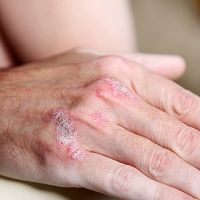Game-changing Dermatology Treatment for Hidradenitis Suppurativa Patients
“Hidradenitis suppurativa (HS) is a nightmare, probably the most negatively life-impacting disease we see in all of dermatology. We finally have a therapy to address it, “ remarked Jeffrey Sobell, assistant professor of dermatology, Tufts University School of Medicine, Boston, MA, at the Skin Disease Education Foundation (SDEF) Hawaii Dermatology Seminar.

“Hidradenitis suppurativa (HS) is a nightmare, probably the most negatively life-impacting disease we see in all of dermatology. We finally have a therapy to address it, “ remarked Jeffrey Sobell, assistant professor of dermatology, Tufts University School of Medicine, Boston, MA, at the Skin Disease Education Foundation (SDEF) Hawaii Dermatology Seminar.
Tthe tumor necrosis factor inhibitor, adalimumab, is the first FDA-approved treatment for HS — Sobell estimated he has used the treatment in approximately 20 HS patients with “more successes than failures”.
The condition doesn’t only affect patients with pain. According to experts, it’s often an embarrassing disease, occurring in areas of the skin that produce extreme drainage from lesions.
Sobell and team conducted two phase III trials, in which 53% of patients administered adalimumab had a 50% or more reduction in inflammatory nodules and abscesses.
HS patients initially begin with a loading dose of 160mg, 80mg at week two, and a weekly 40mg maintenance dose starting at week four. Patients can begin responding favorable to the treatment as early as two weeks.
The results indicated “Overall more than half of patients achieved a clinically meaningful improvement by week 12, which correlates with improvements in quality of life and work productivity.”
Adalimumab’s benefits appear most beneficial when treating scarring, sinus tract formation, or poorly controlled pain.
Experts do believe higher disease are necessary as HS patients are typically heavier than psoriasis patients, and their lesions have higher levels of tumor necrosis factors as well as other inflammatory cytokines.